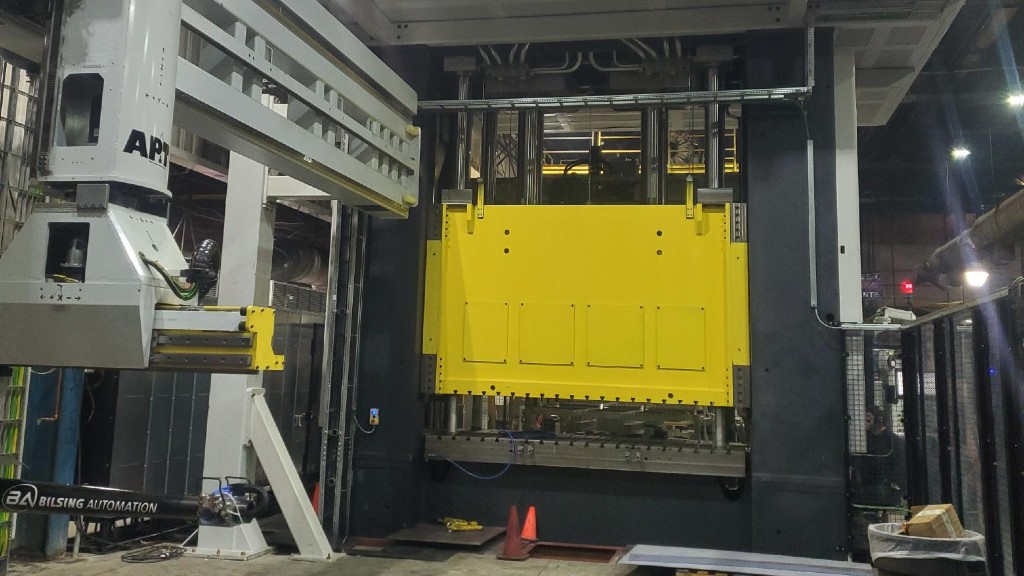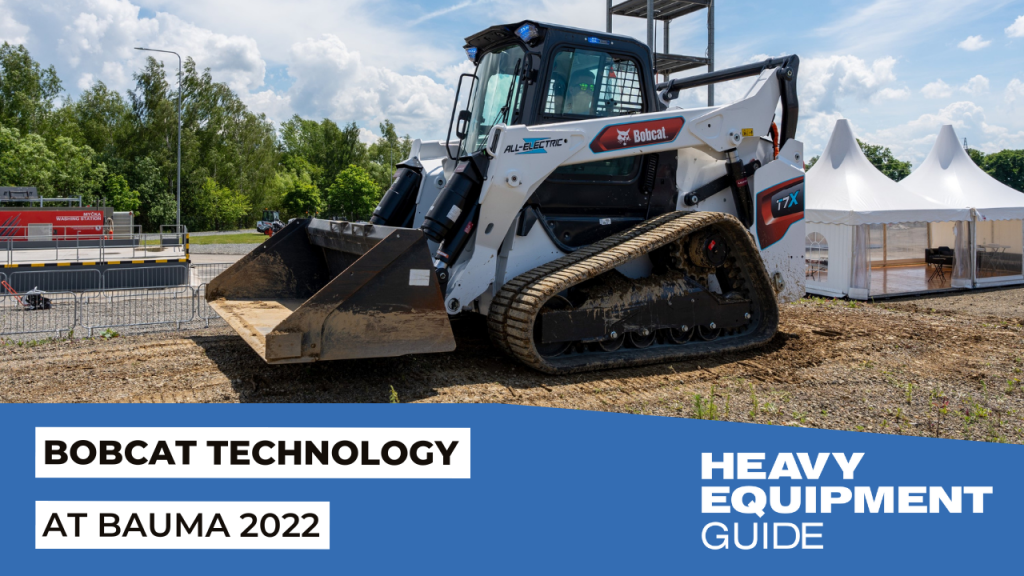Bobcat invests $9.3 million in automated industrial punch press at North Dakota facility

Bobcat Company has completed a $9.3 million investment in punch press automation and press technology at its manufacturing facility in Gwinner, N.D. The new press line, which recently began production, is expected to more than double press production capabilities, reduce energy consumption, lower noise levels, and improve complex forming for sheet metal parts, all of which will help meet the increasing demand for Bobcat equipment. The company also invested an additional $1.2 million for entrance and building upgrades at the Gwinner location.
"As the home of our original manufacturing facility in North America, we are excited to invest in the facility and add this new automation technology to the Gwinner plant," says Mike Ballweber, president of Bobcat Company North America. "This investment will provide us with new capabilities and efficiencies in our metal stamping operations, and it also aligns with our commitment to innovation, sustainability, and continued investments in our manufacturing footprint."
Bobcat partnered with AP&T North America, Inc. for the fully automated tandem line, which includes the design and building of the new 2000-ton valveless servo-hydraulic lead press at the Gwinner facility.
"Bobcat is one of the first companies in North America to invest in the future by implementing this automated solution using our new press technology," says Dr. Christian Koroschetz, chief sales officer of AP&T Group. "This investment also supports Bobcat's interest in pursuing sustainable, energy-efficient manufacturing solutions."
The highly automated, valveless servo-hydraulic press is 70 percent more energy efficient than a conventional hydraulic press. The press also provides increased productivity and superior forming capabilities, which enables the pressing of more intricate and complex designed parts, along with shorter cycle times. The press line and automation are controlled via internet-based solutions.
Bobcat first became aware of the new press technology through a relationship with Wisconsin-based TCR Integrated Stamping Systems. Bobcat partnered with TCR Integrated Stamping Systems to provide the new press control systems and magnetic quick die changes for all other presses in the tandem line.
"While visiting AP&T in Sweden, I was introduced to their latest automation breakthrough and knew it would provide a significant advancement for Bobcat. This unique solution provided the ability to move parts in excess of 200 pounds very quickly over great distances; it was perfect for them," says Todd Wenzel, president of TCR. "In addition to the latest automation, AP&T also demonstrated their new valveless, servo-hydraulic technology for me. Its unique capabilities, too, had clear application for the Gwinner facility and is consistent with Bobcat's sustainability goals."
The Gwinner manufacturing complex serves as the very first Bobcat production facility, which was established in 1947. The facility covers 780,000 square feet, employs approximately 1,500 employees, and produces Bobcat loaders and utility work machines. The operation continues to grow with about 60 open positions in general production, including assembly, welding, material handling, fabrication, paint, maintenance, and machining.
"This investment demonstrates Bobcat's commitment to our manufacturing footprint in Gwinner and supports our next generation manufacturing capabilities for North America," says Jim Flynn, vice president of operations at Bobcat Company. "It is another step for us when it comes to automation, robotics, new technologies and advanced data analytics."



